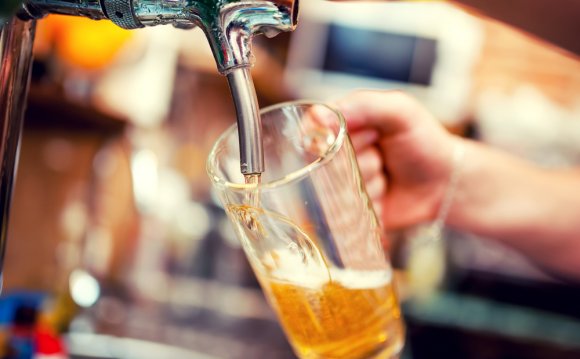
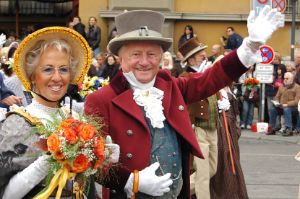 Crown Prince Ludwig, later to become King Ludwig I, was married to Princess Therese of Saxony-Hildburghausen on 12th October 1810. The citizens of Munich were invited to attend the festivities held on the fields in front of the city gates to celebrate the happy royal event. The fields have been named Theresienwiese ("Theresa's fields") in honor of the Crown Princess ever since, although the locals have since abbreviated the name simply to the "Wies'n".
Crown Prince Ludwig, later to become King Ludwig I, was married to Princess Therese of Saxony-Hildburghausen on 12th October 1810. The citizens of Munich were invited to attend the festivities held on the fields in front of the city gates to celebrate the happy royal event. The fields have been named Theresienwiese ("Theresa's fields") in honor of the Crown Princess ever since, although the locals have since abbreviated the name simply to the "Wies'n".
Horse races in the presence of the Royal Family marked the close of the event that was celebrated as a festival for the whole of Bavaria. The decision to repeat the horse races in the subsequent year gave rise to the tradition of the Oktoberfest.
The Oktoberfest continues in 1811
In 1811 an added feature to the horse races was the first Agricultural Show, designed to boost Bavarian agriculture. The horse races, which were the oldest and - at one time - the most popular event of the festival are no longer held today. But the Agricultural Show is still held every three years during the Oktoberfest on the southern part of the festival grounds.
In the first few decades the choice of amusements was sparse. The first carousel and two swings were set up in 1818. Visitors were able to quench their thirst at small beer stands which grew rapidly in number. In 1896 the beer stands were replaced by the first beer tents and halls set up by enterprising landlords with the backing of the breweries.
The remainder of the festival site was taken up by a fun-fair. The range of carousels etc. on offer was already increasing rapidly in the 1870s as the fairground trade continued to grow and develop in Germany.
Today, the Oktoberfest is the largest festival in the world, with an international flavor characteristic of the 21th century: some 6 million visitors from all around the world converge on the Oktoberfest each year.
And since the Oktoberfest is still held on the Theresienwiese, the locals still refer to the event simply as the "Wies'n". So "welcome to the Wies'n" means nothing other than "welcome to the Oktoberfest"!
RELATED VIDEO
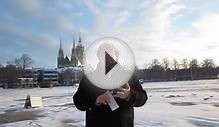
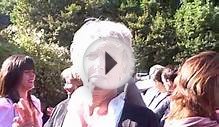
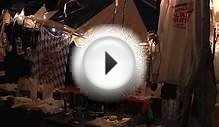

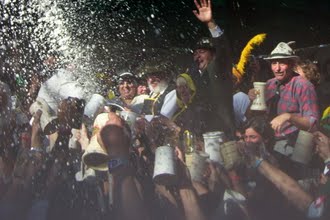 The National Beer Festival is Argentina's version of the German Oktoberfest. It has taken place every October since 1963. This festival attracts thousands of tourists for two consecutive weekends. Today it is the largest in Latin America after the festival in...
The National Beer Festival is Argentina's version of the German Oktoberfest. It has taken place every October since 1963. This festival attracts thousands of tourists for two consecutive weekends. Today it is the largest in Latin America after the festival in...








